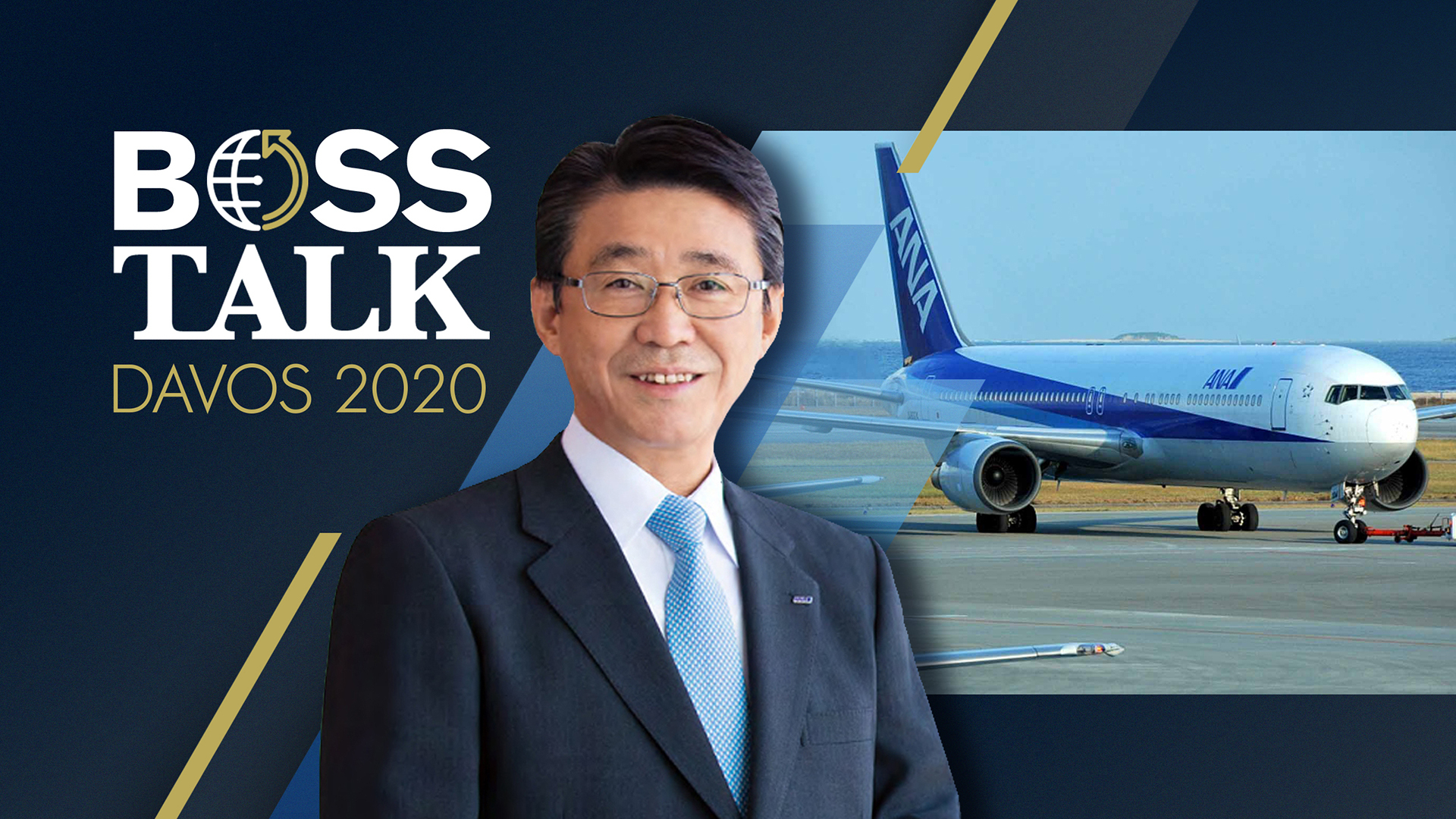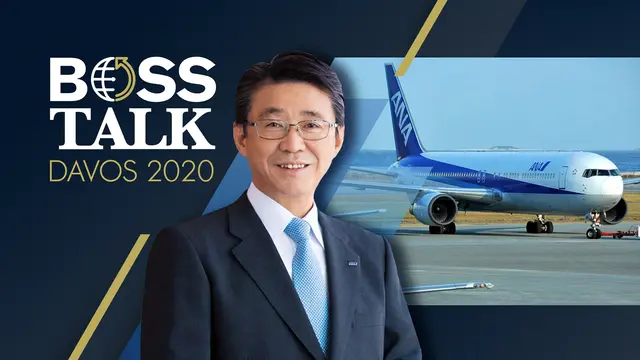02:29

All Nippon Airways (ANA) Holdings is hoping to continue expanding its network beyond its current destinations to capitalize on expectations of a year of recovery following a challenging 2019 for the aviation industry.
Shinya Katanozaka, president and CEO of ANA Holdings, who has reportedly described himself a "new route advocate," said that the largest airline company in Japan will continue to aggressively add to its flight routes around the world as part of its "corporate vision" to become the leading airline group in the world.
"There are many other countries (that are) white spot destinations. We have never serviced (and) hardly covered south America. So we need to expand to other areas," Katanozaka told CGTN at the sideline of the World Economic Forum in Davos.
ANA this year is adding five new cities to its network from Tokyo Haneda International Airport, namely Istanbul, Milan, Moscow, Shenzhen and Stockholm. This will bring the total number of international cities under ANA's network to 52.
"So we are now expanding our network for the convenience of the people, both Japanese and foreign countries," he added.
The International Air Transport Association (IATA) last month forecast that the global airline industry will improve following a challenging 2019, with a forecast net profit of 29.3 billion U.S. dollars in 2020, versus a net profit of 25.9 billion U.S. dollars expected in 2019. IATA had attributed the tougher-than-anticipated business environment in 2019 to slowing economic growth, trade wars, geopolitical tensions, and social unrest, plus continuing uncertainty over Brexit.
China-U.S. trade war hit ANA hard
Katanozaka said that the U.S.-China trade war and tariff negotiation have a serious impact on the airline, especially its cargo business.
"So we transport semiconductors to China, and we transport smartphones to the U.S. mainland, so these cargo businesses were damaged from the trade war. But the U.S. and China agreed first step agreement, so that is good news for us," he said.
With businesses going into 2020 with expected headwinds such as uncertain earnings, performance, geopolitical tensions, and the chance might cut back travel, Katanozaka said the Japan airline is likely to get a boost from the upcoming Olympic games.
"So [the] Japanese government is targeted 40 million people from around the world. So we are now, this (Olympic and Paralympic Games) is a good tailwind for us," he said.
Exploring VR robotic tech
Katanozaka also said that the airline has also been improving its so-called "universal service," with the implementation of facial recognition systems and wider widths at its gates to better cater to the disabled.
Katanozaka also explained why ANA was embarking on developing what they call "avatar" robots – machines that the company envisions can help travelers remotely control and "travel" to distant destinations in real-time.
"This is a typical question. You're an airline, airlines want people to physically travel, you know, but there is a huge amount of people living in global but only good six or seven percent can use airplane."
Katanozaka said the idea was so "people can easily meet people living far away."
"For example, their parents, their friends, this is the best way to contact immediately, move to another country or even your home country's home to meet your mother, to talk and to touch and to hear."
 简体中文
简体中文

